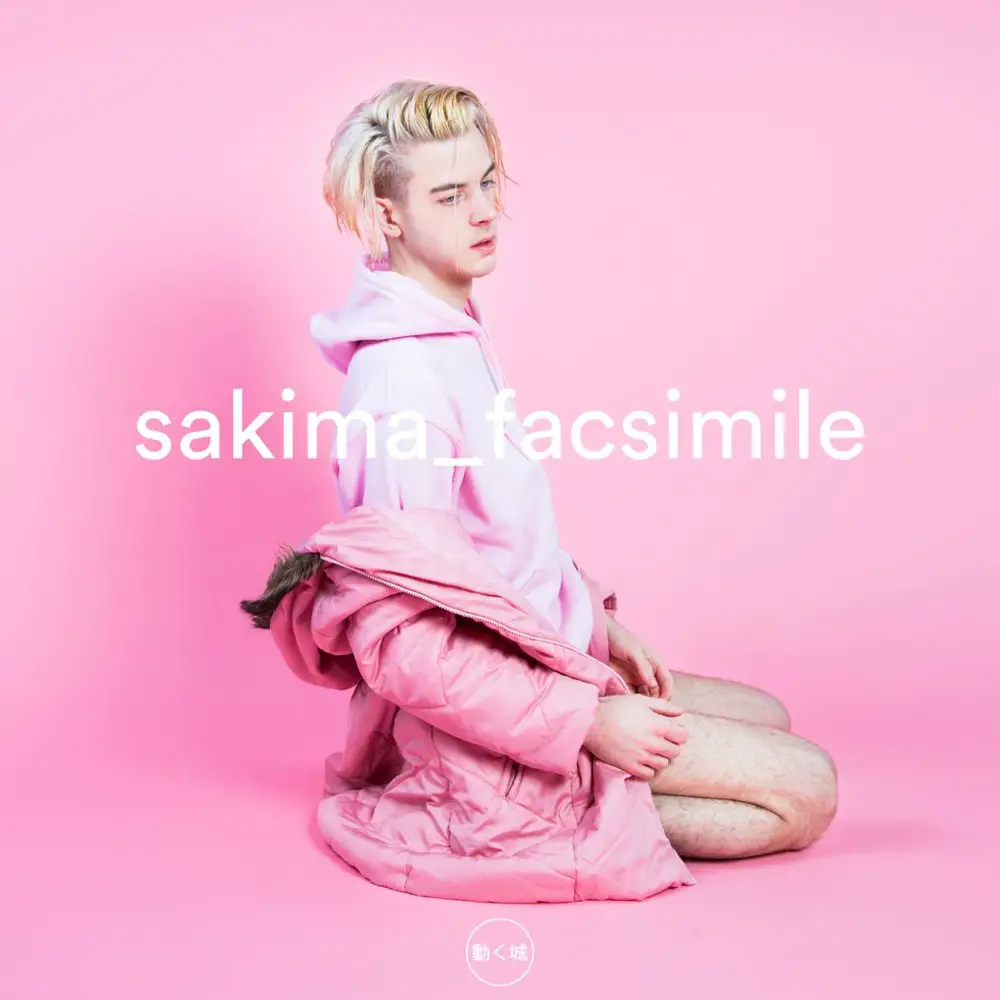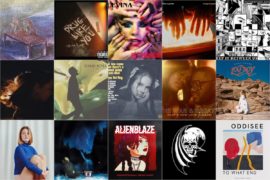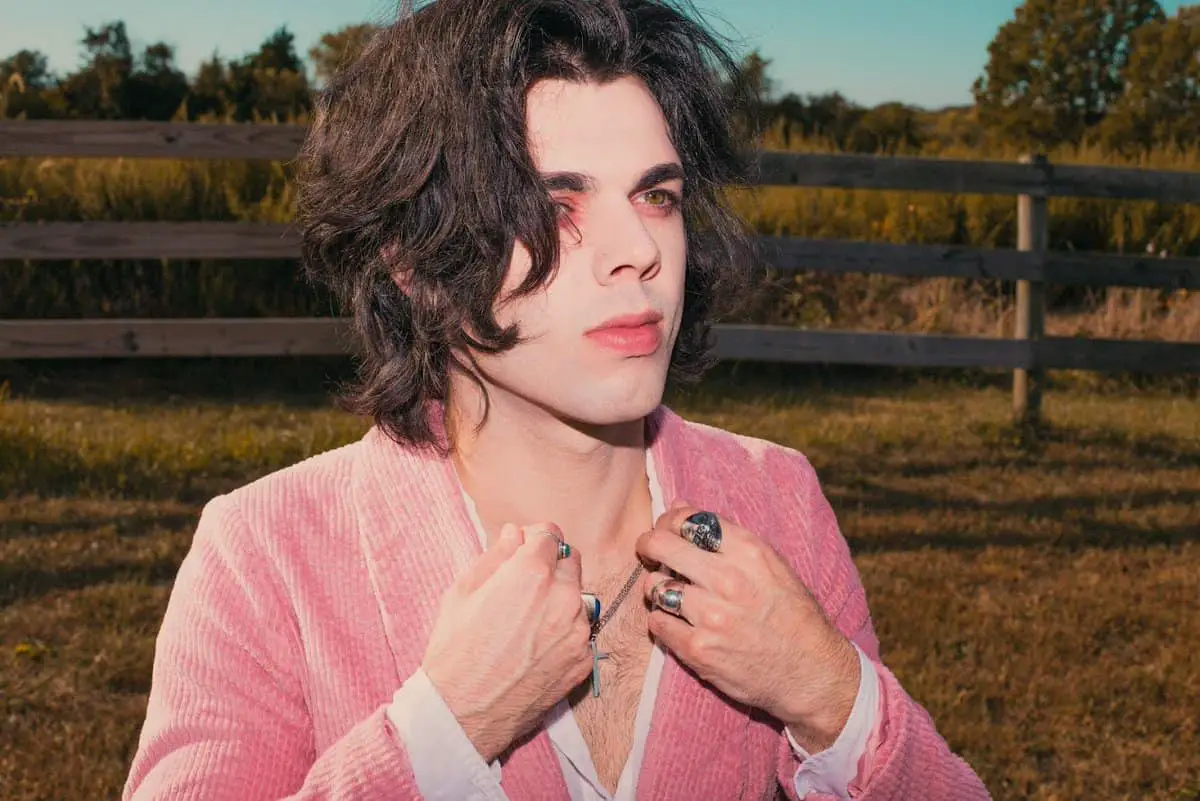SAKIMA talks about the challenges, importance and personal significance of bringing LGBT sex into the pop conversation.
— —
Sex sells. The saying dates back as far as the late 1800’s, and it continues to ring true with artists profiting off of explicit lyricism, music videos and personas (see: Miley Cyrus pre-“Malibu”). But there’s something to be said about sex selling, particularly in the music world, if, and almost only if, you’re straight.
The world of pop culture has evolved immensely in terms of its acceptance of LGBT story lines in movies, television and music, to some degree, but a threshold still exists to be crossed in terms of sexual gay narratives in mainstream music. SAKIMA recognized this gap in pop music and made it his personal and professional purpose to fill it, starting with his recently released EP, Facsimile (May 16, 2017 via Moving Castle).
Listen: Facsimile EP – SAKIMA
[soundcloud url=”https://api.soundcloud.com/playlists/322426785″ params=”color=ff5500&auto_play=false&hide_related=false&show_comments=true&show_user=true&show_reposts=false” width=”100%” height=”300″ iframe=”true” /]
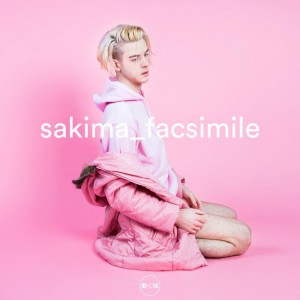
Facsimile is sexy, moving, and extremely gay. It’s a bold statement that says gay sex shouldn’t be a niche, a stereotype, or something to be whispered about. Troye Sivan and Mary Lambert are fantastic artists who have done much for the LGBT community, but it’s time to keep moving forward, past the romanticism, and into the erotic. SAKIMA’s EP does this with a sensual collection of songs that refuses to hide behind innuendos and suggestions: “Want you to fuck me like I’m a problem / I’m a problem,” and “I wanna be the one that you call / For sex and dim sum.”
While the lyrics are sexually explicit, their presentation is sensual and seductive – SAKIMA sings each word and hits each note with precision and earnest conviction. All four songs carry an authenticity and importance that can’t be denied, and shouldn’t be overlooked. Put simply – disliking sexual content isn’t a reason to dislike this piece of work, because it represents so much more than that.
Find out more about SAKIMA’s perspective and intentions on his Facsimile EP below.

A CONVERSATION WITH SAKIMA
Atwood Magazine: I first heard your work on What I Know Now which is an awesome track – and it was super refreshing in the way it blended pop/r&b/electronic. – how would you describe your sound and how you found it?
SAKIMA: If I had to nutshell it, I would say it’s kind of a left-field, R&B electronic pop. I know that’s not really a nutshell, is it? But yeah, I guess you could just say “left-field pop,” really, to surmise it. I’ve always been passionate about that kind of music, but also along with other kinds of music I’ve explored over time. I first started with more acoustic stuff, just me on a piano and singing – and a lot was really inspired by Rufus Wainwright and Antony and the Johnsons, so those were kind of the instigators for me really wanting to write and sing. Then I got really into R&B and pop music around that same time, when I started going into high school. And that was also around the time when I started to teach myself how to produce and stuff, but all these different kinds of genres in both mainstream and left-field started to converge, in a way. But the reason I really, especially in the past couple years, have just decided to commit to electronic music and to have a specific focus in pop music is because of my personal ethos and the message I want to convey. I think it‘s best conveyed in pop music because that’s where my message is most needed in terms of bringing a sexual dialogue and a sexual narrative for the LGBT community, and obviously through my own personal lens of being a gay man, to bring that into the pop sphere because that conversation isn’t there. The dialogue for gay sex isn’t there. Gay acts and artists exist, of course, and they’re great assets to pop music. But you constantly spend your whole childhood and teenage years, and now as an adult, switching out all the pronouns so it can be more amenable to you. And there’s just no space for you to go to, there’s no sound world for you to feel truly comfortable or to truly identify with. And it’s not to say we can’t identify with straight music or heterosexual narratives and it’s not to say that heterosexuals can’t identify with gay narratives, but there needs to be more equal weighting, and that’s why I’ve decided to commit to my music because I think that’s what needs to change the most. Sorry that was like such a speech!
No, no, I love it! It’s super refreshing to hear artists thinking that way and obviously you have that perspective. I think the fact that you chose to go super sexy, like no-holds-barred is very different, because there are gay, pop musicians out there and the first one I think of is Troye Sivan, but this is completely different.
SAKIMA: Yeah exactly, I’m definitely kind of exhausted by there only being this kind of “parental guidance” version of queer narratives within pop music. It’s like, you know, same-sex couples have sex as well, like, we should totally sing about that!
You’re right, I think all the LGBT music out there, at least that I’ve heard, is very PG – and that’s what a lot of music is, but the straight community does have a lot of sexier content.
SAKIMA: Yeah, and also down to the persona of artists and the lyrical content – in heterosexual music, or heteronormative music, there’s a real sexual currency and vocabulary of explicitness that is accessible to people who are younger than 18. So I don’t know, I just feel like it’s kind of outrageous that all these mainstream artists, the content of their lyrics is just so sexually explicit, but so widely accepted and it’s crazy the roadblocks that are up, in my personal experience. Between writing songs of a similar lyrical content but from a different perspective, trying to get those to not just the public, but within the industry – it’s toxic because people really think it’s not going to sell if your grandparents aren’t going to like it – but it’s like, that’s the wrong audience!
Totally, and that was one of my questions - if you were worried about the reaction you would get with the EP or how you thought people would react.
SAKIMA: I think there’s a couple sides to it really – I feel like I’m absolutely not afraid of negative reactions to the gay content whatsoever, just from looking at, like, a whole childhood of homophobia. I was the only kid in a school of 3,000 kids who was out, so, all of that kind of shit doesn’t phase me. What I care most about is people reacting to it in a positive way, like people connecting to it in the way I intended for them to and also in ways that I might not expect. What’s really important for me is if the audience reacts to it well so that industry people can see that the audience is there, and that it can grow. So, I’m really happy and excited to release a body of work in terms of just the music, but when you strip it back to the music, I dream sky high – but in the moment I’m like, “I just hope it does okay,” and then when it doesn’t it’s like, “I’m shit!,” haha. I hope it does nicely in terms of it just being music in its own right, but the other side of it is that I really want it to resonate with people because it’s an area that we didn’t have when we were growing up. It’s been interesting, I’ve had a lot of cool reactions on Instagram.
Oh, yeah?
SAKIMA: Yeah it’s really interesting, one person commented on my post of me asking, “what’s your favorite track?” and said they didn’t know because they liked the production but not any of the lyrics – and it’s like, okay, the lyrics were the most political part of the whole thing. So I DM’ed them saying I was interested in knowing their opinion and why, and they said thought the lyrics were too sexual. So in a very nice way I was like, “oh, that’s fine that you’re not into how sexual it is, but this is the reason behind it and this is the intention of it,” and it kind of opened this whole floodgate into their own story so that was an amazing signifier of what could be achieved, kind of.
There’s definitely been a lot of progress but there are still miles to go, and it’s overwhelming to think about, but it’s also inspiring when that kind of stuff happens in response to your work, I’m sure.
SAKIMA: It’s incredibly motivational, absolutely, and if anything it’s just reaffirming that you’re doing the right thing or at least have the right idea. And if it’s helping at least one person, I know that’s kind of cliché, “if it helps one person,” the idea is to help millions of people, but.
It’s a cliché, though, because it’s true!
SAKIMA: Yeah, so that was really heartwarming and it’s a really lovely reaction to get.
So, you talked about the industry being toxic in terms of trying to get yourself out there – what are some experiences you’ve had with that and how has it been working with Moving Castle?
SAKIMA: Yeah, so Moving Castle has been really great. Maybe about a year ago I was in quite a bad situation – it’s not like a sob story, but basically the people I was working with were very restrictive on my sexuality being a part of my music and I had always expressed myself in exactly who I am – I’ve known that I was gay since I was able to have feelings for other people. So that’s always been how I’ve expressed myself, it’s always been part of my work, and this group basically wanted it to not be part of my music. So, most of the music industry is really afraid of non-PG gay artists, and anything that’s remotely explicit as gay is still a niche or a stereotype. So I was in this situation where I did a really great music video that got put in the bin because it was too homoerotic and I wasn’t allowed to use my pronouns, and if I had photos that had my top off, even if it was my own, that was going to be too homoerotic. So I finally took myself out of that situation and got some new management after a bit of time away that really cared about me and didn’t give a fuck about those parts – they were just like “that’s who you are.” And that is what led me to Moving Castle, especially since I’m in a duo called SWIMS with AOBeats, and so they kind of welcomed me into the family. And I don’t want to misquote but there was a recent, brief write-up about this EP saying how much of a leap of faith it was for Moving Castle to work with someone with such a distinct message. And that is a lovely statement, it’s immensely complimentary, but it’s also an interesting signifier of how it’s not just Moving Castle putting music out it’s them taking a leap of faith, haha.
Yeaaaaah, that’s a little backhanded, it seems?
SAKIMA: It’s like when Amy Schumer, have you ever seen that thing? Where she did her Netflix comedy special and she mentioned the photoshoot where she’s basically naked holding a coffee cup.
I was JUST talking about this with someone yesterday!
SAKIMA: Yeah! And they’re like “oh, how brave,” and it’s like, that’s not what you want to fucking hear, are you kidding me? I expose myself and you call it brave? So it’s kind of a similar thing, like someone being like, “oh it’s great someone taking a chance on this artist,” and it’s like, you’re fucking kidding.
I mean, you'd think they should feel proud, you know?
SAKIMA: Yeah, and I get that people are making a nice sentiment and the intention is good, but it’s just a bit of a tightrope, isn’t it? I just think it’s a great illustration of someone kind of like, highlighting the whole point of it.
Totally. So, can you tell me a little bit about your short video project with Rianne White? I just came upon that yesterday and it seems really cool.
SAKIMA: Oh, thank you! Yeah, me and Rianne have known each other for a really long time. We met the week before university started and we became, like, instant best friends. She’s from Scotland and is a director, and filmmaker and all that kind of stuff. So, she didn’t know that was what she wanted to do when we met and I didn’t know I was gonna really go straight into music, because we both studied dance together at Uni, which is really random. We became fast friends and we used to play creatively all the time – choreographing, making little films together, taking pictures and stuff – we were each other’s muses in a way. And so it was really natural in a way for us to work together in this professional context. It was totally just the right thing to do, and she was the one who directed and filmed that music video I mentioned earlier that got put in the bin, so that’s a good way to illustrate how close we are and how supportive she is of my ID’s and my ethos. So, she was the perfect person to help me launch this whole thing because this debut EP, Facsimile, is the whole kind of shotgun at the beginning of the race. We’re working on our next thing together, actually, coming out at some point, who knows! She’s amazing and we didn’t really have to even communicate when we were making it and we would just shoot stuff and had the same ideas, it was really lovely.
They were such short snippets so I feel like it would be hard to decide what to put into it and how to communicate what you wanted to say.
SAKIMA: Yeah it was interesting with it being a collaboration with VSCO, we wanted it to be super condensed because people would be seeing it on their phone and we wanted to keep it to that digestible format. And you’re right, it presents a really interesting creative restriction. And in this sense it was interesting to communicate the themes and ideas in the songs through 30 seconds or less videos – it was really hard, but really good, yeah.
Very cool. So you guys are working on a project together then, that’s kind of your next thing?
SAKIMA: Yeah exactly, so I’m working on this project coming up that’s kind of a second EP but I think it’s far too soon for me to do anything like an album. It is on the verge of being an album because it’s gonna a bit longer, like seven songs, and they’re basically all done because all I do in my life is music so I’m always like five projects ahead of where I’m at, haha. So I have about seven songs at the moment and they’re all a deeper exploration of what I’ve introduced into the pop sphere with these songs, with a bit extra going on, and in the spirit of doing something deeper and more explored we’re going to do a longer audio / visual collaboration. I don’t want to just follow the tribe and do one of those music video films – so I quite like the idea of a music video being presented in the way singles used to be presented when you had an A and a B side, so having a B side video so it can all be kind of a six-minute piece but it’s not just one thing – it’s like the first bit and then you flip over and you get this way more detailed thing. So I quite like the concept of that being more of a thing with music videos, so I might do something like that. Unless someone else does it first!
That sounds really awesome! So, let’s talk about the tracks really quick – how did you choose the singles, “What I Know Now” and “Happy Hr,” and how did you package the songs together?
SAKIMA: That’s actually a really complex question. Like I was saying, I write music really intensely all the time, so basically I have these chapters of songs in life in the same way people would look back on a month or whatever. I look back and I have this month worth of songs that are all kind of the same concept or the same sound world. So the EP was kind of a combination of the past month or two, apart from “What I Know Now,” which I wrote like a year before, so they just fit together naturally because that’s how I work – I make batches of things and everything is a project, nothing is ever too random. And “What I Know Now” I chose specifically as the first single because it was the most commercially viable and that was kind of where I wanted to make my biggest statement – in more commercially accessible music – because that’s where I think it’s most important and most needed. And then “Happy Hr” I wanted to just illustrate that I don’t write sad songs – that was probably the first non-sad but regressive song I ever put out. I also wanted those songs to be out of the way as singles because if they weren’t then it would detract from the fact that it’s meant to be an EP, and it’s something you should dig into and get lost in or feel like you’re a part of this snowglobe of ideas. And if I put the more politicized or darker songs first it wouldn’t be as much of an experience to listen to, and it would feel less like you’re discovering it. So I tried to construct it release-wise in a way that felt like you were going into this bottleneck of ideas rather than just being like, “single, single, banger, banger” – so that’s kind of the rationale behind it. I really struggled with the second single because I really wanted it to be “He’s Trippi” because it’s the most saturated in male pronouns and homoerotica and for me, on the EP that’s the most important song. But it’s difficult trying to be an artist who can make good music and an artist who can also have a political and sociocultural agenda and instigate change. Because you’ve got to think kind of gently about how you’re going to put stuff out and construct this brand that’s going to be, hopefully, an impetus or contribute to societal change, but you also have to think like an artist, so there’s always a bit of contention going on. I think it was the right choice though, but I hope that people, especially the LGBT community, can dig into the deeper parts of it. But I promise you this is literally just the beginning because it gets so much deeper in these themes and ideas in this upcoming stuff.
Well I’m looking forward to it, can’t wait to see what you do!
SAKIMA: Thank you, I’m really excited to start sharing it but also just to see how the EP grows! But it might just burn in hell, so we’ll see!
:: purchase/stream SAKIMA’s facsimile EP ::
— — — —
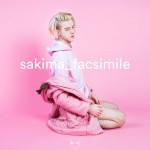
Connect to SAKIMAon
Facebook, Twitter, Instagram
Discover new music on Atwood Magazine
cover © Anna Partington


